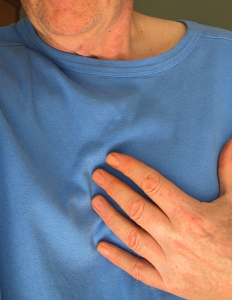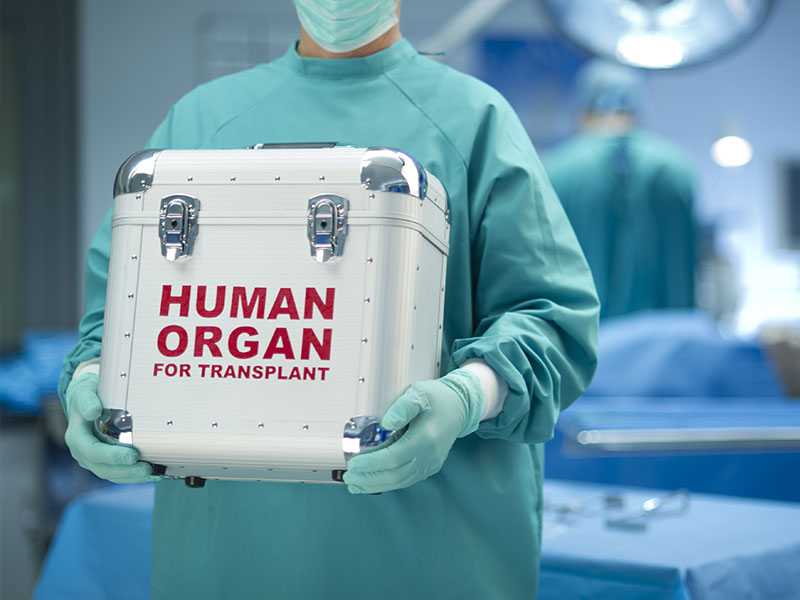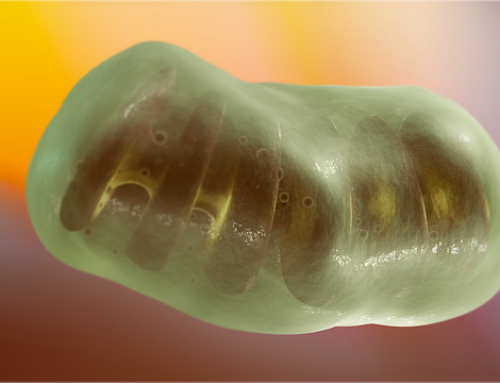
A well-absorbed Q10 supplement can benefit end-stage heart failure patients who are on the wait list for a new heart.
Do you know someone who is in end-stage heart failure and is waiting anxiously for a new heart? The thing about heart transplantation is that there are not nearly as many heart donors as there are patients needing hearts. So the big question is: what can we do to help end-stage heart failure patients while they are on the wait list for a heart?
Q10 and heart disease
In the articles on this web-site, we have highlighted the beneficial results of supplementation with Coenzyme Q10 in chronic heart failure. Most recently, the Q-symbio clinical trial has added solid evidence of the efficacy of a well-absorbed Q10 supplement taken as an adjunctive therapy for chronic heart failure.
Rationale for Q10 supplementation
In developing the rationale for the Q-symbio study, Dr. Svend Aage Mortensen, a cardiologist at the Heart Centre of the University of Copenhagen, made an interesting discovery: the worse the deficiency of Coenzyme Q10 in failing hearts, the more severe the heart disease. This relationship could be seen clearly in the available biochemical data (3).
Results from 13 clinical studies with Q10 supplementation
Furthermore, Dr. Mortensen could see that oral Coenzyme Q10 therapy reduced the Q10 deficiency and reduced the severity of the heart disease (3). When he reviewed the results of the controlled clinical trials of Q10 therapy in heart failure patients, he found that the results were positive in 10 out of 13 clinical trials, which had enrolled a total of nearly 1000 heart failure patients. Three of the 13 clinical trials yielded neutral results, but, overall, the clinical trial evidence showed improvement in the symptoms and the exercise capacity and the quality of life of heart failure patients receiving Q10 therapy.
Q10 supplementation very safe, also prior to heart surgery
In addition, there were hardly any side-effects from Q10 therapy in daily doses of Q10 ranging from 100 mg to 200 mg. Dr. Mortensen concluded that Q10 in doses up to 200 mg/day for a period of 6 to 12 months and in doses of 100 mg/day for a period of up to 6 years had been shown to be safe and free of any major side effects. Now, of course, the Q-symbio study has shown that daily doses of 300 mg over a number of years are safe doses.
In a study conducted by Dr. Judy, Dr. Stogsdill, and Dr. Folkers, a dosage of 100 mg/day of Coenzyme Q10 starting 14 days prior to heart surgery and continuing for 30 days after heart surgery showed therapeutic benefits in preserving the heart muscle during the heart surgery and during the long recovery after the surgery (5). This cannot be emphasized too much: 14 days of 100 mg per day of Q10 supplementation did not cause bleeding or other problems during heart surgery.
Q10 and elderly healthy adults
We also have the evidence of the KiSel-10 study done with healthy elderly adults showing that long-term supplementation with organically bound selenium yeast tablets and with coenzyme Q10 dissolved in vegetable oil in soft-gel capsules can reduce cardiovascular mortality.
Karl Folkers and the impetus for using Q10 with heart transplant patients
The first researchers to see the merit in treating patients in end-stage heart failure with Q10 were the biochemist Karl Folkers and the medical doctors Per Langsjoen and Peter Langsjoen (2). They reasoned that supplementation with Q10 would rectify deficiencies of Q10 in the heart muscle, which would, in turn, improve the production of energy in the heart and would, then, improve the performance of the ailing heart.
Folkers and the Langsjoens treated 11 heart transplant candidates with Q10, and all 11 patients improved to the extent of moving up one or more classes in the New York Heart Association functional classification scheme.
Israeli clinical trial with heart transplant patients and Q10
Dr. Marius Berman and his colleagues in the Department of Cardiothoracic Surgery in the Rabin Medical Center in Israel had heart transplant patients on wait lists (1). They wanted to help these patients as much as possible while they waited for a new heart. They knew that the patients’ blood plasma levels of Q10 were severely low, in the range of .18 to .22 mg/L as compared with Q10 blood plasma levels of 0.5 to 1.0 mg/L in normal healthy adults.
Using a highly bioavailable form of Coenzyme Q10, the Israeli researchers were able to raise the Q10 blood plasma levels three to four times above the very low baseline levels. The result was that, after three months of supplementation with Q10, the patients performed better on the 6-minute walk, they had less difficulty breathing while exerting themselves, and they experienced less fatigue carrying out daily activities.
Q10 supplementation and quality of life
As Dr. Berman said, the patients’ quality of life improved noticeably during the period that they received a Q10 supplement. Moreover, there were no severe adverse effects in a sample of vulnerable patients: end-stage heart failure patients.
Dr. Sinatra’s comment on the Israeli Q10 study
Dr. Stephen Sinatra, an American cardiologist whose interest is in integrative therapies that treat the whole person, took note of the significant improvement in the Israeli patients’ clinical symptoms and functional status and quality of life (4). He knows from his own practice that the heart failure patient’s heart is an energy starved heart and that Q10 supplementation is a safe and effective method to improve the energy dynamics in the heart muscle cells. Dr. Sinatra has had at least two patients, treated with Q10 supplements, come off the heart transplant lists as a result of the improvement in heart function.
Dr. Berman’s perspective on the value of Q10 supplement
Dr. Berman makes a good point about Q10 as an adjunctive therapy in heart failure. He points out that the other therapies available to the cardiologist address various problems of the failing heart but do not address the dysfunction in the production of energy in the cells of the heart muscle. Q10 is vital for energy production at the cellular level.
A well-absorbed Q10 supplement needs to be an adjunctive therapy option for the treatment of chronic heart-failure patients. Let’s face it. In many of us, it is the heart muscle, of all our organs, that is going to wear out first. We need to give it what it needs to keep on producing energy.
Sources:
- Berman, M., Erman, A., Ben-Gal, T., Dvir, D., Georghiou, G. P., Stamler, A., & … Aravot, D. (2004). Coenzyme Q10 in patients with end-stage heart failure awaiting cardiac transplantation: a randomized, placebo-controlled study. Clinical Cardiology, 27(5), 295-299.
- Folkers, K., Langsjoen, P., & Langsjoen, P. H. (1992). Therapy with coenzyme Q10 of patients in heart failure who are eligible or ineligible for a transplant. Biochemical And Biophysical Research Communications, 182(1), 247-253.
- Mortensen S.A. (2003). Overview on coenzyme Q10 as adjunctive therapy in chronic heart failure. Rationale, design and end-points of “Q-symbio”–a multinational trial. Biofactors, 18(1-4):79-89.
- Sinatra, S. T. (2004). Coenzyme Q10 in patients with end-stage heart failure awaiting cardiac transplantation: a randomized, placebo-controlled study. Clinical Cardiology, 27(10), A30.
- Judy WV, Stogsdill WW, Folkers K. (1993).Myocardial preservation by therapy with coenzyme Q10 during heart surgery. Clin Investig. 1993;71(8 Suppl):S155-61.








Leave A Comment